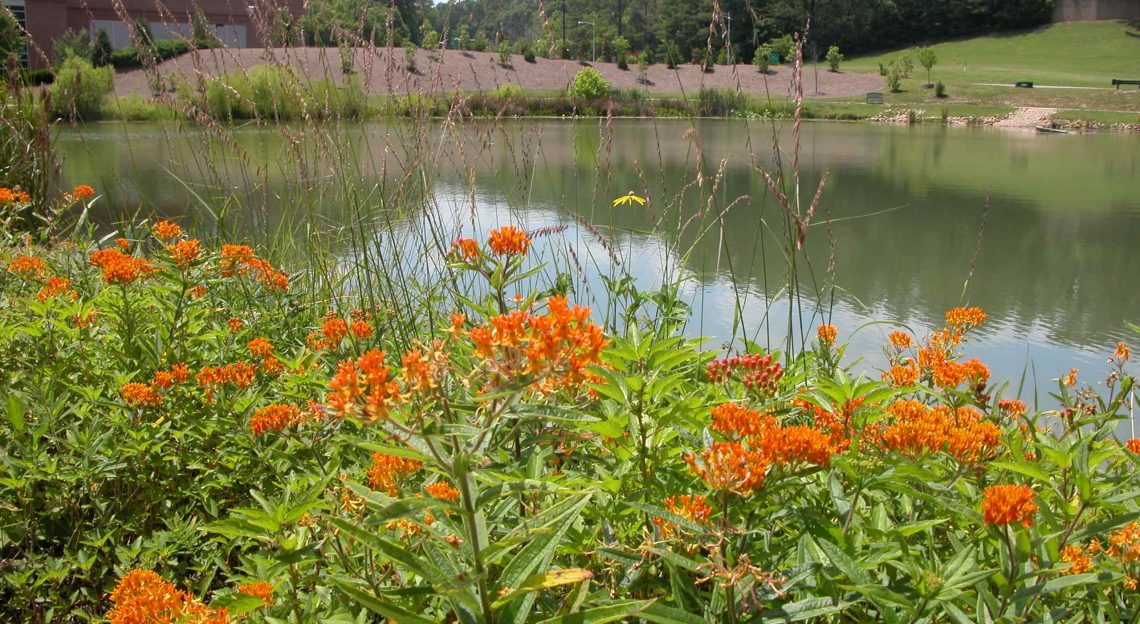ORNL now has an Arboretum!
Although not open to the public, the newly certified ORNL Arboretum offers employees the opportunity to learn about the native trees used in ORNL landscaping while walking around west campus. Click the link above to view a map of the arboretum and see the article featured in ORNL Today.
Plants for Pollinators
Check out the Pollinator page to see how native landscaping at ORNL and natural resource management on the Oak Ridge Reservation are helping pollinators.
Sustainable Campus Landscaping
You may have noticed native plants in the landscaping around campus. This isn’t an accident. The landscaping around campus has become a major focal point for the Sustainable ORNL. Using plants native to this area allows us to not only highlight their beauty and educate staff and guests about them, but provides a unique look for ORNL that has additional benefits. Native plants support native birds, butterflies, dragonflies, and other wildlife — some of which are dependent on specific native plant species for food and reproduction. Native plants are better adapted to local environmental conditions and, replacing areas planted in fescue with native landscaping is not only aesthetically appealing, it reduces overall maintenance needs.
It is our goal to be a forerunner in sustainable landscaping techniques, as well as an example for the other DOE sites. Much research is being done on site about these techniques; from rain gardens to deal with storm water runoff, wetland plantings in detention basins, vegetation buffer enhancement in riparian areas, and aquatic plantings at the East Campus Pond to native grass community establishment on First Street and Bethel Valley Road. Take a look around this updated website to gain information on the many projects going on around campus.



Regional Native Plant Nurseries
- GroWild, Inc.
- Overhill Gardens
- Tennessee Wholesale Nursery
- Grassland Aquatics
- Mellow Marsh Farm, Inc.
Presentations
PowerPoint Presentations about Sustainable Landscaping at ORNL
- Plants Used in ORNL Landscaping by Pat Parr and Mike Ryon
- Sustainable Landscaping at ORNL by Pat Parr
Posters/Handouts about Sustainable Landscaping




